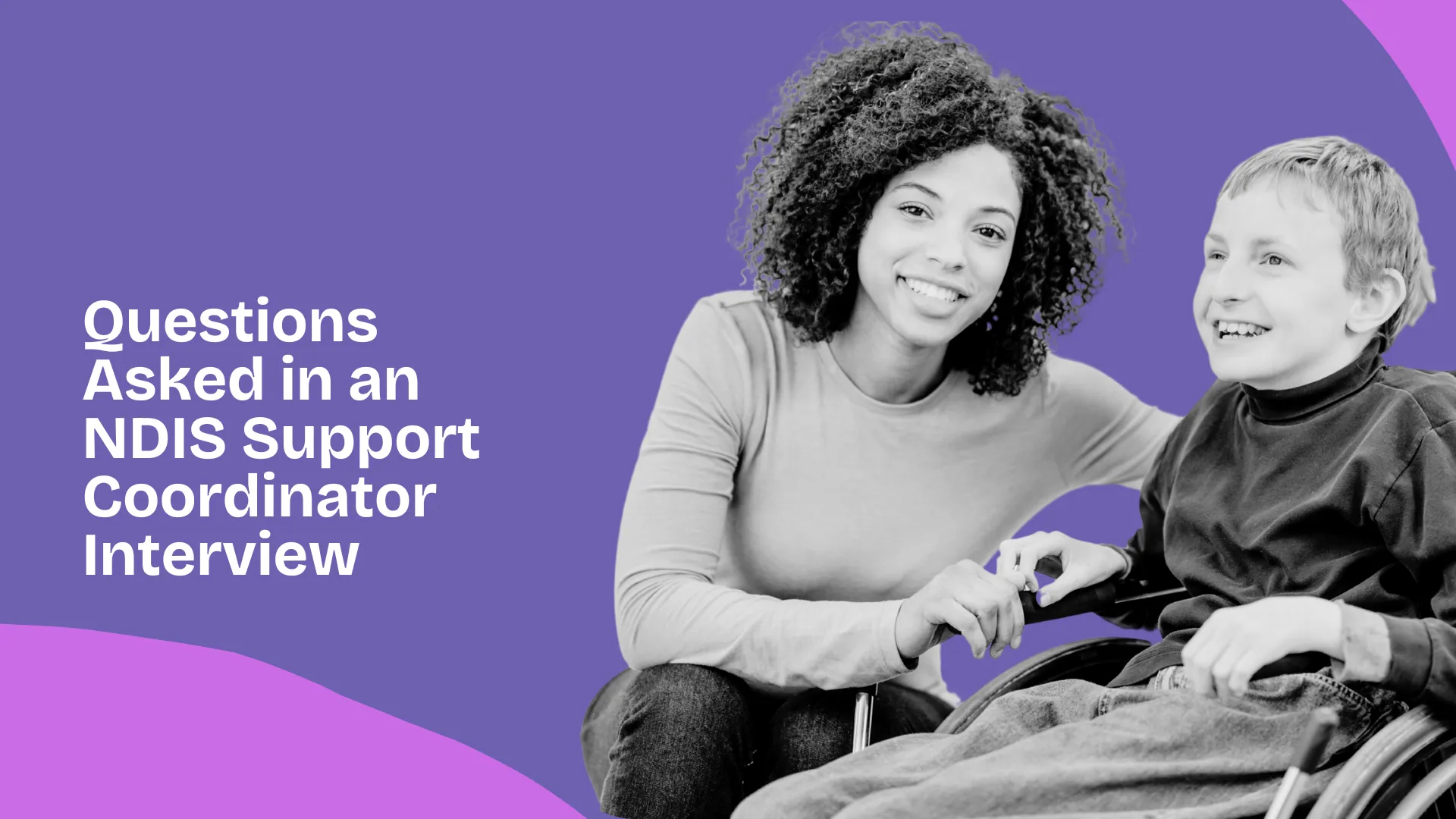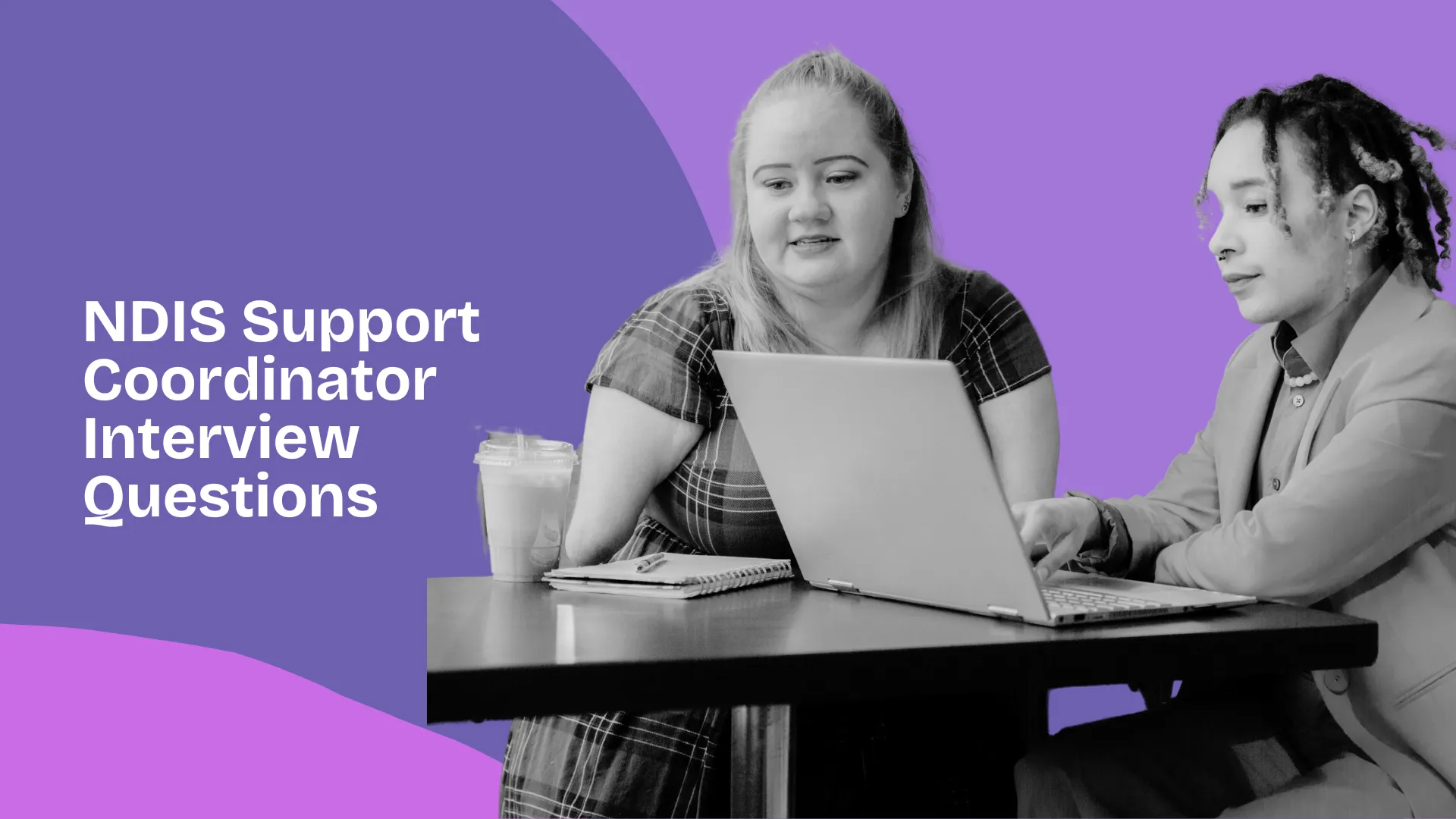NDIS Support Coordinators play a crucial role in helping participants navigate the National Disability Insurance Scheme (NDIS). They assist with plan implementation, connect participants with services, and ensure that supports align with individual goals.
If you are preparing for an NDIS Support Coordinator interview, understanding the types of questions asked can help you showcase your skills, experience, and knowledge of the NDIS.
What Are the Key Responsibilities of an NDIS Support Coordinator?
Before preparing for an interview, it is essential to understand the core responsibilities of the role. These include:
- Assisting NDIS participants in understanding and implementing their plans.
- Connecting participants with appropriate service providers and community supports.
- Monitoring and reviewing supports to ensure they meet the participant’s needs.
- Helping participants build capacity and independence.
- Navigating NDIS processes, including plan reviews and funding adjustments.
- Ensuring compliance with NDIS guidelines and maintaining accurate documentation.
Having a strong grasp of these responsibilities will help you answer interview questions with confidence.
Related: NDIS Support Worker Job Description: Roles, Responsibilities, and Skills
What Questions Are Asked in an NDIS Support Coordinator Interview?

1. Can you explain the purpose of the NDIS?
How to Answer:
- Describe the National Disability Insurance Scheme (NDIS) as a government-funded program that supports people with disabilities.
- Explain how it provides funding for services and support to help participants achieve their goals.
- Mention the focus on choice, control, and independence.
2. What are the different levels of support coordination in the NDIS?
How to Answer:
Explain the three levels:
- Support Connection – Basic assistance to help participants access supports.
- Support Coordination – Helping participants understand their plans and connect with services.
- Specialist Support Coordination – For participants with complex needs requiring higher-level assistance.
3. How do you help an NDIS participant understand their plan?
How to Answer:
- Explain how you break down the plan components, including Core, Capital, and Capacity Building supports.
- Discuss using clear, simple language and visual aids if needed.
- Mention supporting the participant in setting goals and prioritising funding use.
4. How do you ensure an NDIS participant receives the best services?
How to Answer:
- Explain your research and referral process for finding high-quality, reliable providers.
- Mention considering cost, participant preferences, and service quality.
- Discuss the importance of ongoing monitoring and feedback from the participant.
5. Can you describe a time when you successfully helped a participant achieve their goals?
How to Answer:
- Use the STAR method (Situation, Task, Action, Result) to structure your response.
- Provide a real example where you supported a participant in overcoming challenges to achieve their goal.
6. How would you handle a participant who is unhappy with their current service providers?
How to Answer:
- Discuss active listening and understanding their concerns.
- Explain the process for changing providers, including reviewing agreements and finding alternatives.
- Highlight the importance of participant choice and control.
7. What would you do if a participant had insufficient funding for their needs?
How to Answer:
- Explain how you would review the participant’s current plan to optimise funding use.
- Discuss applying for a plan review if more funding is necessary.
- Mention finding low-cost or community-based alternatives if needed.
8. How do you handle challenging behaviour from a participant?
How to Answer:
- Emphasise the importance of patience, empathy, and de-escalation techniques.
- Discuss working with behaviour support practitioners if required.
- Highlight the need to understand triggers and provide person-centred support.
9. How would you support a participant who has difficulty making decisions?
How to Answer:
- Explain how you use supported decision-making strategies.
- Discuss helping participants understand options without pressuring them.
- Mention working with families, guardians, or advocates if necessary.
10. Can you describe a situation where you had to coordinate multiple services for a participant?
How to Answer:
- Use the STAR method to share an example.
- Highlight your organisational skills, communication with multiple providers, and participant-focused planning.
11. What would you do if a participant was in crisis and needed immediate support?
How to Answer:
- Explain your steps in ensuring the participant’s immediate safety.
- Discuss contacting appropriate emergency or crisis support services.
- Highlight maintaining accurate documentation and notifying relevant stakeholders.
12. How do you manage conflicts between participants and service providers?
How to Answer:
- Discuss using mediation skills to resolve issues.
- Explain ensuring NDIS Code of Conduct compliance.
- Highlight escalation processes if needed.
13. What steps would you take if a participant’s needs changed significantly?
How to Answer:
- Explain reviewing current supports and assessing new needs.
- Discuss coordinating a plan review with the NDIA.
- Mention liaising with healthcare professionals for updated assessments.
14. How do you manage a caseload of multiple NDIS participants?
How to Answer:
- Explain how you prioritise urgent cases while managing long-term support needs.
- Discuss using case management tools and scheduling strategies.
- Highlight maintaining accurate documentation and communication.
15. How do you track participant progress and service effectiveness?
How to Answer:
- Mention using progress notes, goal-tracking tools, and regular reviews.
- Explain gathering feedback from participants and providers.
- Discuss adjusting supports based on progress and feedback.
16. How do you ensure compliance with NDIS guidelines?
How to Answer:
- Discuss following the NDIS Code of Conduct and Practice Standards.
- Mention staying updated on NDIS policy changes.
- Highlight accurate record-keeping and reporting.
17. How do you protect a participant’s privacy and confidentiality?
How to Answer:
- Explain following NDIS Privacy Principles and obtaining informed consent.
- Discuss secure storage and handling of participant information.
- Mention only sharing information when legally and ethically required.
18. How do you handle ethical dilemmas in support coordination?
How to Answer:
- Explain using NDIS ethical guidelines and professional judgement.
- Provide an example of an ethical challenge and how you resolved it.
19. What are the biggest challenges facing NDIS Support Coordinators today?
How to Answer:
- Discuss challenges such as funding limitations, service availability, and policy changes.
- Mention how you adapt to these challenges through problem-solving and advocacy.
20. Why do you want to work as an NDIS Support Coordinator?
How to Answer:
- Share your passion for helping people with disabilities.
- Highlight relevant skills and experience.
- Mention your commitment to participant empowerment and capacity building.
Related: Common NDIS Support Worker Interview Questions
Final Thoughts
Preparing for an NDIS Support Coordinator interview involves understanding the role, demonstrating your knowledge of the NDIS, and showcasing your problem-solving and communication skills. By reviewing common interview questions and structuring your responses effectively, you can increase your chances of success.
If you are applying for a Support Coordinator role, take the time to research the organisation, understand its service approach, and be ready to discuss how your experience aligns with their values and participant needs.

